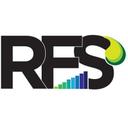EPA: 11 new SRE petitions filed, 1 SRE petition denied

SOURCE: U.S. EPA
January 17, 2025
BY Erin Voegele
The U.S. EPA on Jan. 16 released updated small refinery exemption (SRE) data, showing 11 new SRE petitions have been filed under the Renewable Fuel Standard. The agency denied one SRE petition and 139 SRE petitions remain pending.
The 11 newly filed SRE petitions include one for RFS compliance year 2021, one for RFS compliance year 2022, one for RFS compliance year 2023, five for RFS compliance year 2023 and three for RFS compliance year 2024.
Advertisement
Kern Oil and Refining Co. filed three SRE petitions seeking waivers of its RFS blending obligations for its Bakersfield, California, refinery for RFS compliance years 2021, 2022 and 2023. U.S. Oil and Refining Co. filed two SRE petitions seeking waivers for its Tacoma, Washington, facility for compliance years 2024 and 2025. Par Montana Refining filed two SRE petitions for 2024 and 2025 seeking waivers for its refinery in Billings, Montana. Wyoming Refinery Co. also filed two SRE petitions seeking 2024 and 2025 waivers for its facility in Newcastle, Wyoming. Placid Refning Co. filed one SRE petition seeking a waiver its 2024 blending requirements for its facility in Port Allen, Louisiana, while Countrymark Refining and Logistics filed one SRE petition seeking a 2024 waiver for its Mt. Vernon, Indiana, refinery.
EPA data indicates the agency denied a SRE petition filed by Calumet Shreveport Refining seeking a waiver of the 2023 RFS blending obligations for its refinery in Shreveport, Louisiana. The agency earlier in January denied two other SRE petitions, including one filed by Calumet Montana Refining seeking a waiver of the 2023 blending obligations for its refinery in Great Falls, Montanta, and one filed by Wynnewood Refining Co. seeking a waiver of the 2023 RFS blending obligations for its refinery in Wynnewood, Oklahoma.
Advertisement
The remaining 139 pending SRE petitions include two for compliance year 2016; one for compliance year 2017; 38 for compliance year 2018; 27 for compliance year 2019; 28 for compliance year 2020; six for compliance year 2021; four for compliance year 2022; 12 for compliance year 2023; 15 for compliance year 2024; and six for compliance year 2025.
The EPA’s online SRE data dashboard also includes data on small refineries that have opted into the agency’s alternative renewable identification number (RIN) retirement schedule for the 2020 compliance year. According to the EPA’s online data dashboard, 17 small refineries are participating in the alternative RIN retirement schedule, with the total renewable volume obligation (RVO) for those refineries at 880 million RINs. A total of 540 million RINs have been retired under the alternative retirement schedule as of Jan. 16. The total outstanding RVO is currently at 340 million RINs, according to EPA’s data dashboard.
Related Stories
More than 1.76 billion renewable identification numbers (RINs) were generated under the Renewable Fuel Standard in January, down from 1.91 billion generated during the same period of 2024, according to data released by the U.S. EPA on Feb. 20.
The U.S. EPA on Feb. 20 released updated small refinery exemption (SRE) data showing that 13 previously denied SRE petitions for Renewable Fuel Standard compliance years 2021 and 2022 are being reconsidered. No new SRE petitions were filed.
A coalition of biofuel, agriculture, fuel retailer and petroleum trade groups on Feb. 19 sent a letter to U.S. EPA Administrator Lee Zeldin urging the agency to set robust, timely, multiyear RFS RVOs for 2026 and beyond.
OMV Petrom has announced the start of construction for a sustainable aviation fuel (SAF) and renewable diesel (HVO) production unit at the Petrobrazi refinery in Romania. The new facility will have an annual capacity of 250,000 tons.
CVR pauses development of potential SAF projects pending regulatory, tax credit clarity
CVR Energy Inc. released fourth quarter financial results on Feb. 18, reporting reduced renewable diesel production. The company also said it is pausing development of SAF capacity pending clarity on government subsidies.
Upcoming Events










